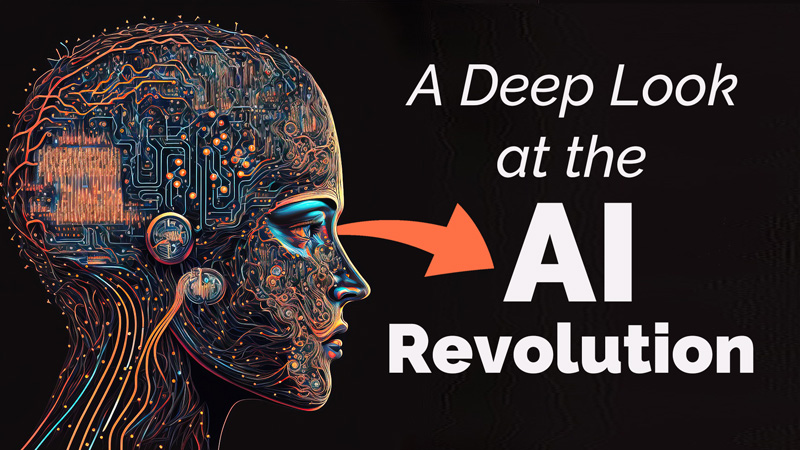-
The Secret of the Red Tide

Why does the stunning bioluminescence in the ocean, often described as ‘sea sparkle’ or ‘milky seas’ and known for its beautiful blue-green glow at night, appear so different during the day? Commonly referred to as red tide, the ocean water appears murky, often with a brown or red tone. In some parts of the Pacific […]
-
The Promises and Pitfalls of the Artificial Intelligence Revolution

Artificial intelligence brings forth a wave of transformative possibilities capturing the minds and curiosities of people and industries around the world. But this evolving technology also poses challenges that demand careful consideration. At the forefront of this intersection, AI plays a pivotal role in accelerating research, unlocking insights, and propelling advancements in various biological domains. […]
-
Harnessing Stem Cells to Solve Problems

Bioengineering is a field that applies engineering principles to biological and biomedical problems. Stem cell research allows us to understand the basics of human development and disease. When these two disciplines meet, a world of possibilities for human health is unlocked. During the 2021 Sanford Stem Cell Symposium, a panel of experts discussed recent advancements […]
-
A Deep Conversation with Rita Colwell
For over a quarter century, Rita Colwell has led a research effort that provided a more complete understanding of how one of the oldest and most chronic scourges of humanity – cholera – proliferates and spreads. But her efforts did not come easily or without challenges. In this special presentation and open forum, she discusses […]
-
Oxygen Loss in the Ocean: The Blinding Truth
Ocean oxygen levels are changing globally as a result of both natural and human-influenced processes, and in some areas low oxygen events are becoming more common. While research on terrestrial animals has shown that low oxygen levels can affect vision – a vital function for finding food and shelter and avoiding predators – the impact […]
-
Our Impact on the Earth
“Mother Nature is not happy right now and she’s trying to tell us, in many ways,” says Kimberly Prather, Professor of Climate, Atmospheric Science, and Physical Oceanography at UC San Diego. New weather patterns and events are causing concern but how do we know these changes are caused by human activity? Climate scientists are looking […]
-
Editing the Code of Life
You may not know what clustered regularly interspersed short palindromic repeats means, but when you see or hear the word CRISPR it all takes on new meaning, thanks to the efforts of UC Berkeley’s Jennifer Doudna and her collaborator Emmanuelle Charpentier, who developed this revolutionary method of genomic editing. Her work has literally changed the […]
-
Unlocking the Mysteries of the Brain Through Stem Cell Research
Inside a lab at the Sanford Consortium for Regenerative Medicine, researchers are doing something truly remarkable. They are growing tiny versions of developing human brains in order to study everything from Alzheimer’s disease to the Zika virus. Alysson Muotri is the co-director of the UC San Diego Stem Cell Program and leads the team researching […]
-
How a Year in Space Affects the Human Body
Science fiction has long promised an age of interplanetary human existence. Scenes of spaceships hopping from one galaxy to the next are so common, it seems almost inevitable that future generations will one day vacation on Mars. But, if we are ever going to achieve life on other planets, we first have to figure out […]